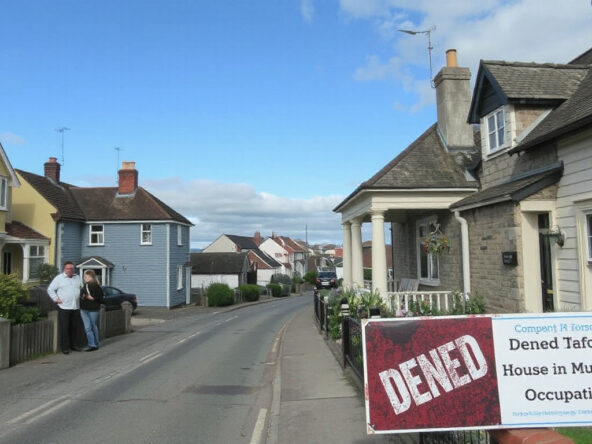In a notable development for housing in Merthyr Tydfil, plans to convert a four-bedroom dwelling into a six-bedroom house in multiple occupation (HMO) on Overton Street, Dowlais, have secured approval on appeal. This decision comes after the local planning committee initially rejected the application in May, highlighting concerns related to community character, resident supervision, and potential increases in local parking and anti-social behaviour issues. However, the Welsh Government-appointed planning inspector found the council’s objections to be inadequately justified, stating that the proposed conversion would not substantially affect the area’s character or highway safety. The ruling not only overturned the council’s decision but also criticized the council for acting unreasonably, leading to costs being awarded against it. This article delves into the background of the HMO proposal and the implications of the planning inspector’s ruling for the local community and housing policies in the region.
Key Takeaways
- The planning committee’s rejection of the HMO application was deemed unreasonable by a planning inspector.
- The conversion of the property is not expected to significantly impact the area’s character or safety, contrary to council concerns.
- Community objections were insufficiently justified according to the planning inspector’s ruling, highlighting the need for evidence in planning decisions.
Background of the HMO Proposal
In a pivotal decision, plans to transform a four-bedroom property into a six-bedroom house in multiple occupation (HMO) on Overton Street, Dowlais, have been approved on appeal, following a ruling that awarded costs against Merthyr Tydfil’s planning committee for acting unreasonably. The initial rejection by the council in May raised concerns regarding potential alterations to the area’s character, insufficient oversight of residents, and worries about increased parking demands, anti-social behavior, and safety risks. However, the appointed planning inspector from the Welsh Government deemed the council’s rationale lacking in substantial evidence to support these concerns. The inspector determined that the conversion would not pose significant harm to the character of the area or to highway safety and criticized the council for creating unnecessary financial burdens for the applicant due to its refusal. Despite community opposition, which highlighted fears of disturbances and safety implications, the inspector concluded that the objections raised by the council were inadequately justified.
Implications of the Planning Inspector’s Ruling
The implications of this ruling extend beyond the immediate case, signaling a shift in how planning applications, particularly those for HMOs, will be assessed by local authorities in Wales. This decision underscores the need for planning committees to base their rejections on clear, substantiated evidence rather than generalised concerns or public sentiments. The planning inspector’s ruling acts as a precedent, suggesting that future applications may face less resistance if local councils fail to demonstrate compelling evidence against them. Furthermore, the decision could encourage more property owners in Merthyr Tydfil to pursue similar conversions, potentially increasing the number of HMOs in the area. This trend might lead to heightened scrutiny of local housing strategies, pushing Merthyr Tydfil’s council to rethink how it manages its housing policies and community engagement in planning processes. Such actions will be necessary to balance community safety and interests with the growing need for affordable rental accommodation in light of housing shortages across Wales.
Please ask us questions via WhatsApp, email, or direct messaging.




